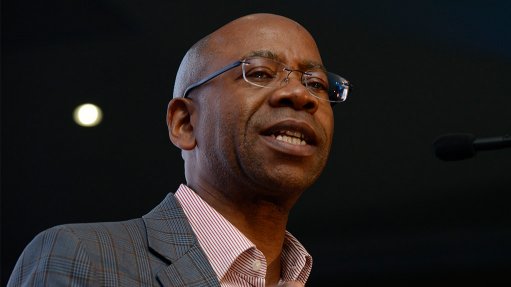
University of the Free State Chancellor, Johannesburg Business School (JBS) Professor of Practice, Bidvest Group and SBV Services chairperson and World Economic Forum Community of Chairpersons member Bonang Mohale
University of the Free State Chancellor, Johannesburg Business School Professor of Practice, Bidvest Group and SBV Services chairperson and World Economic Forum Community of Chairpersons member Bonang Mohale has stressed the importance of South Africa investing in educating its youth.
"We find it very difficult to invest in our human capital, yet the war for talent is intensifying," Mohale said during the Environmental, Social and Governance (ESG) Africa conference, in Johannesburg, on October 4.
He noted that South Africa had the world's highest small and medium-sized enterprise (SME) failure rate, largely owing to a failure to invest in people at all levels of society.
"We can talk about ESG until we are blue in the face, but when people struggle to make ends meet and when they establish their own companies but cannot access larger ones, I believe it will all be in vain."
He said that much of the reason for the lack of success could be attributed to government failures.
"Public education has failed, public healthcare continues to fail the poor and the vulnerable, and crucial infrastructure is lacking. Lawlessness has now become an epidemic," he said.
Mohale said claims of a lack of funds needed to invest in education or to clear government debt to make way for other investments were a result of an unwillingness or inability to think outside the box and implement innovative solutions.
"There are about 1.2-million students in 26 institutions of higher learning. To provide all of them with fee-free education would cost us R50-billion. It's a significant amount, but when you consider that the South African Reserve Bank, over the last ten years, on average, collected between R1.4-trillion and R2-trillion after refunds to companies and individuals, what is R50-billion to educate not only our future leaders but also our current leaders?" Mohale said.
He went on to lament South Africa's ongoing R16.5-billion historical debt, of which R9.2-billion is still in recovery, 29 years into democracy.
"And yet, we claim to be serious about our human capital," he remarked.
Excluding the 2.5-million SMEs in South Africa, which are mostly survivalist in nature, Mohale suggested a look at the 1.5-million medium-sized companies. Then he suggested adding to that the 400 companies listed on the JSE, especially the 60 companies that hold securities in private equity firms, all of which have some form of corporate social investment (CSI) programme and existing commitments to educational funding.
"If we redirect money that has already been approved by their own boards toward CSI and, in particular, education, and if we ask each one of them to contribute no less than R1-million to the historical debt fund, and then we challenge the government to match those contributions rand for rand, then in one year, not in 29 years of democracy, we would have wiped out the entire R16.5-billion of historical debt,” Mohale claimed.
"We would have saved this current generation of leaders from suffering mental health issues, food insecurity and poverty,” he said.
"South Africa is not a poor country. Africa is not a poor continent. It is simply poorly governed," Mohale concluded.